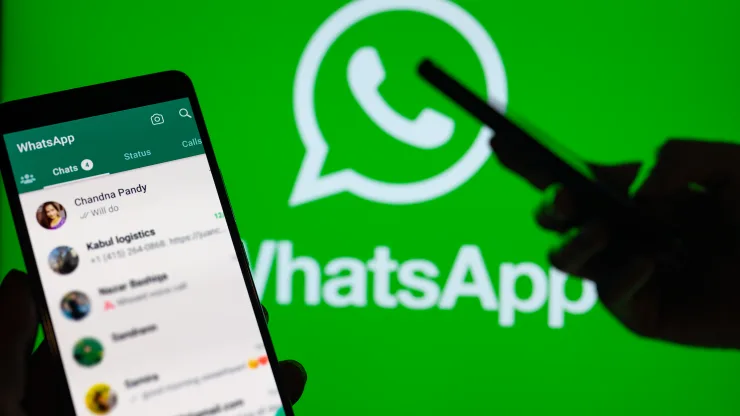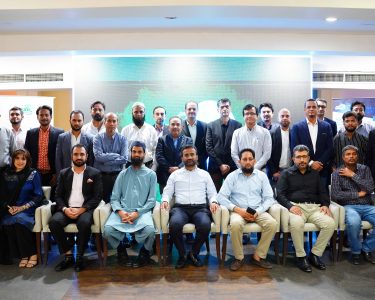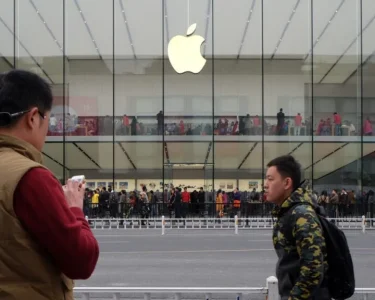Meta’s Alarming Discovery of Iranian Hackers Targeting U.S. Officials
Meta, the parent company of Facebook and Instagram, recently revealed a concerning discovery involving the use of WhatsApp by Iranian hackers to target high-profile U.S. officials. The targets included key individuals associated with both President Joe Biden and former President Donald Trump. This alarming revelation underscores the growing cybersecurity threats that governments and private organizations face, particularly from state-sponsored actors like those allegedly linked to Iran.

The Unveiling of the Threat
According to a recent statement by Meta, the company identified and took action against multiple WhatsApp accounts that were being used as part of a sophisticated hacking operation. These accounts were linked to a well-known Iranian hacker group, reportedly acting on behalf of the Iranian government. The targeted individuals were mostly associated with the Biden administration and Trump’s circle, including key officials and advisors. Meta’s proactive approach in uncovering and disabling these accounts is a significant step in the ongoing battle against cyber threats.
How the Attack Was Carried Out
The Iranian hackers employed a variety of tactics to deceive their targets. Using WhatsApp, they attempted to establish trust with the officials, often posing as trusted contacts or using social engineering techniques to gain access to sensitive information. These methods are part of a broader strategy known as phishing, where attackers try to trick individuals into revealing confidential data or allowing unauthorized access to their systems.
Meta’s security team noted that these hackers were highly skilled and used advanced methods to bypass traditional security measures. The use of WhatsApp, a platform known for its end-to-end encryption, provided the attackers with a layer of protection that made their activities harder to detect. However, Meta’s continuous monitoring and sophisticated detection tools eventually flagged the suspicious activity.
Implications for National Security
This discovery has raised significant concerns about the potential impact on national security. The involvement of state-sponsored actors in such attacks suggests a coordinated effort to infiltrate and influence U.S. government operations. By targeting officials closely tied to both the current and former presidents, the attackers appeared to be seeking valuable intelligence that could be used to further geopolitical goals.
The Biden administration, in particular, has been vocal about the threat posed by foreign hackers. This incident is likely to reinforce the need for stronger cybersecurity measures across all levels of government. Moreover, it highlights the importance of collaboration between private companies like Meta and government agencies to identify and neutralize such threats before they can cause harm.
Meta’s Role in Cybersecurity
Meta’s swift response to this threat showcases the company’s growing role in the global fight against cybercrime. As one of the world’s largest technology companies, Meta has access to vast amounts of data and sophisticated tools that allow it to detect and prevent cyberattacks. This incident is a testament to Meta’s commitment to protecting its users, particularly those in sensitive positions.
The company has also been actively working with governments and other tech firms to share information about emerging threats. This collaborative approach is essential in a world where cyberattacks are becoming increasingly sophisticated and widespread. By pooling resources and knowledge, companies like Meta can play a crucial role in safeguarding the digital landscape.
The Broader Context of Iranian Cyber Activities
This recent incident is not an isolated case. Iranian hackers have been linked to numerous cyberattacks in recent years, targeting everything from critical infrastructure to political campaigns. The Iranian government has been accused of using cyber operations as a tool of statecraft, seeking to advance its strategic interests in the face of international sanctions and diplomatic isolation.
The U.S. has responded to these threats with a combination of sanctions and cyber countermeasures, but the persistence of these attacks suggests that the Iranian hackers are becoming more resilient and adaptive. The use of popular communication platforms like WhatsApp indicates a shift in tactics, as these hackers look for new ways to reach their targets and evade detection.
What’s Next?
The discovery of these WhatsApp accounts raises important questions about the future of cybersecurity. As state-sponsored hackers continue to evolve their methods, it will be crucial for both governments and private companies to stay ahead of the curve. This means investing in more advanced detection tools, enhancing collaboration across sectors, and raising awareness among potential targets about the risks they face.
For the average user, this incident serves as a stark reminder of the importance of vigilance in the digital age. Even the most secure platforms can be exploited by determined attackers, making it essential to adopt best practices for online security. This includes being cautious about unsolicited contacts, regularly updating passwords, and enabling multi-factor authentication wherever possible.
Meta’s identification of Iranian hackers using WhatsApp to target U.S. officials is a clear example of the ongoing cyber threats facing governments worldwide. As these threats continue to grow in complexity, the need for robust cybersecurity measures has never been more apparent. The collaborative efforts between private companies like Meta and government agencies will be vital in defending against these threats and ensuring the safety of both public and private sector entities.
For more insights into cybersecurity and digital strategies, visit Digital Digest.




